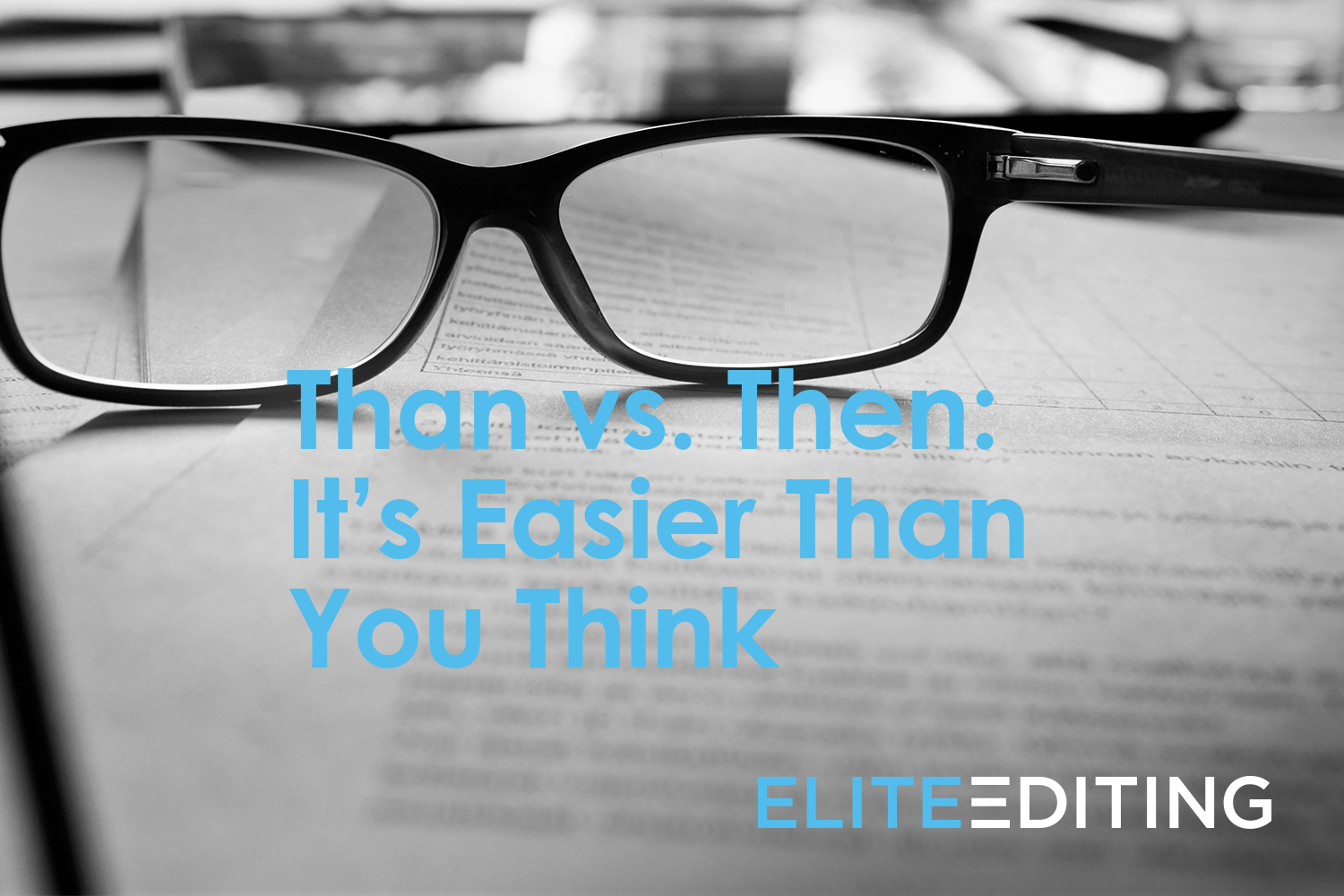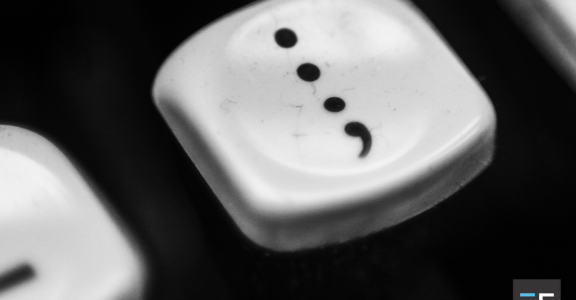
What a difference one letter can make. Than and then look and sound almost exactly the same, so it’s easy to get them confused. However, even though they look similar, they have very different meanings and uses. Are you ready to have the than vs. then question settled, once and for all? All right then! Let’s get started.
Here are the basics:
Than is a conjunction (or sometimes a preposition) that links two things being compared.
Then is an adverb (or, less often, a noun or adjective) that means “at that time” or “next in the sequence.”
Turns out those basics aren’t so basic, right?
If the basics aren’t enough, then it’s time for some examples.
Here is then as an adverb meaning “at that time”:
- I couldn’t have committed the murder, Officer. You said it happened at noon, and I was in school then.
- Back then, I was so flexible I could touch my toes. Now I can’t even touch my knees.
- I remember the good old days! Things were better then!
Here is then as an adverb meaning “next in the sequence”:
- First I ate breakfast; then I went to wait for the school bus.
- You put on your seat belt, and then I will start driving.
- Finish your homework first. Then you can watch TV.
- First I made the pie. Then I ate the pie.
- First I made the pie, and then I ate the pie.
What about if…then?
Then is also the second half of a very useful pair: if…then. In this construction, then means something like “accordingly” or “as a result.”
- If you stop blowing that whistle, then I will not have to tell your mother.
- If we stop providing plastic bags, then customers will have to bring their own.
- If President Merkel attends the summit, then the German press will naturally be present.
Then can also be a noun meaning “that time.” You usually find it following prepositions.
- I can’t wait another hour! By then, I will have died of hunger.
- From then on, Petunia never trusted another person.
- He fell off his bicycle only one time, but since then, he’s refused to ride.
The last use of then is as an adjective meaning “at that time.”
- By invading Poland, then chancellor Adolf Hitler helped to spark World War II.
- The company shut down because Stevie Scammer, the then CEO, was exposed as a fraudster.
What could be better than always knowing when to use than?
Than is either a conjunction or a preposition, and it introduces the second part of a comparison.
- I’m better at tennis than my brother.
- It’s not fair that she got more pudding than I did.
- I had more debt than cash in the bank, so no one would give me a loan.
- Joe’s Burger Shack is much better than McDonald’s.
Because than is both a conjunction and a preposition, what follows it can be its own sentence OR the object of the preposition.
Pop quiz! Which is correct?
A: She is taller than I.
B: She is taller than me.
Surprise! BOTH are correct. In the first sentence, than is a conjunction, and the writer has omitted the verb at the end because it’s implied: She is taller than I am. In the second sentence, than is a preposition, and when pronouns follow a preposition, they must be in object form (me, you, him, her, us, you, them).
So as you can see, than vs. then really isn’t hard to master. Just remember, than introduces the second part of a pair that is being compared, and then refers to when things happen in time.
- Sooner is better than later.
- Today works better for me than tomorrow.
I hope your grammar is better now than it was before. If you have more questions, then you can always contact us here at Elite. We love to help writers get it right.
If you like this post, check out this article about stationery vs. stationary.







